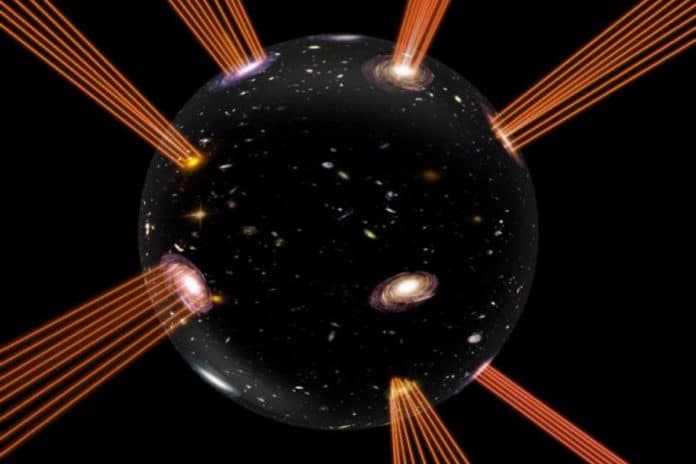We know that our universe is expanding at an accelerating rate, but what causes this growth remains a mystery. The most likely explanation is that a strange force dubbed ‘dark energy’ is driving it.
Understanding the nature of this dark energy is one of the difficult tasks in fundamental physics.
It has for quite some time been trusted that string theory will give the appropriate response. As per string theory, all matter comprises of tiny, vibrating “stringlike” entities. The theory likewise requires there to be more spatial measurements than the three that are as of now part of ordinary information.
For a long time, there have been models in string theory that have been thought to offer ascent to dark energy. In any case, these have come in for progressively harsh criticism, and a few specialists are currently stating that none of the models proposed to date are workable.
Now, scientists at the Uppsala University have devised a model for the Universe, that is expected to solve the enigma of dark energy. Their study proposes another basic concept, including dark energy, for a universe that rides on an expanding bubble in an extra measurement.
This new model with dark energy and our Universe riding on an expanding bubble in an extra dimension. The entire universe is suited on the edge of this expanding bubble. All existing matter in the universe compares to the end of the strings that reach out into the extra dimension.
The scientists additionally demonstrate that expanding the bubble of this sort can appear inside the structure of string theory. It is possible that there are more bubbles, relating to different universes.
Scientists noted, “The model provides a new, different picture of the creation and future fate of the Universe, while it may also pave the way for methods of testing string theory.”
The study is published in the journal Phys. Rev. Lett.
